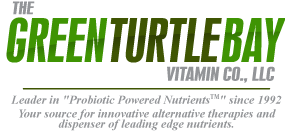CoQ10
|
The following is excerpted with permission from a book written by Dr. Richard Podell, M.D. This information has been helpful to thousands of people in the past, but is not meant to replace your physician. Be sure to check with your physician before undergoing any change in diet. ©1993 The Podell Medical Center, all rights reserved. May not be reproduced in any form without prior written permission. (see Podell Medical Center) COENZYME Q10 (CoQ10) SYMPTOMS THAT SUGGEST Coenzyme Q10 DEFICIENCY: –fatigue CONDITIONS THAT CAN LEAD TO A COENZYME Q10 DEFICIENCY
Tests for deficiency: Research specialists in CoQ10 can measure its level and also the activity of a key enzyme that requires Coenzyme Q10. Unfortunately at the time of this writing, these tests are not available for routine medical practice.
BASICS: Heart, liver, muscle, brain and other vital organs all require Coenzyme Q10 to produce ATP, the body’s main energy storage molecule. Coenzyme Q10 is also required by a key enzyme in the Kreb’s or Citric Acid Cycle, which turns both carbohydrates and fat into usable energy. A powerful antioxidant, Coenzyme Q10 protects cholesterol in the blood from oxidation damage. Merck Pharmaceutical’s popular cholesterol-lowering drugs, Mevacor and Zocor, have the unintended side effect of blocking the formation of Coenzyme Q10. Merck scientists feel that this effect is not important, arguing that most people have more than enough Coenzyme Q10. They may be correct, but other experts believe that a small percent of the population have marginal Coenzyme Q10 levels to begin with and would likely be harmed by further reduction. They question whether low Coenzyme Q10 might be the reason one person in 200 develops a potentially serious muscle inflammation while taking these drugs. The body makes much of its own Coenzyme Q10 and relies on food sources for the rest. Coenzyme Q10 actually refers to a family of chemicals; the human variety is officially “Coenzyme Q10″ (abbreviated CoQ10). Another name for it is Ubiquinone. HISTORY: Dr. Frederick Crane isolated this orange-colored powder from beef heart in 1957. The next year Dr. Karl Folkers, then a research scientist at Merck, identified Coenzyme Q10′s molecular structure. When a professor at the University of Texas, Dr. Folkers was the most prominent advocate for using Coenzyme Q10 to treat congestive heart failure and other diseases. Although scientists show considerable interest in Coenzyme Q10, most practicing physicians are not aware of its potential. FOR GREATER DETAIL Adriamycin: This cancer chemotherapy drug is toxic to the heart, at least in part because it interferes with Coenzyme Q10. In animals, supplemental Coenzyme Q10 is protective. As of this writing, definitive studies have not been done in humans. Many cancer specialists are unaware of this research. Angina: One small Japanese study found that angina patients given Coenzyme Q10 felt better and had improved results on a stress test compared to patients given a placebo. An encouraging result which needs to be repeated before a conclusion can be made. Athletic Performance: Because Coenzyme Q10 is essential for energy metabolism sports physiologists felt it might improve athletic performance. Recent double-blind studies, however, show Coenzyme Q10 to be no better than placebo. Cancer Treatment: Several small studies observed improvement after cancer patients were treated with high dose Coenzyme Q10 (100-300 mg daily). No conclusion can be made without a matched placebo-treated group. Cardiomyopathy: Several reasonable studies show improvement in heart function for people with heart muscle disease. Cholesterol-lowering drugs: Zocor, Mevacor and related drugs cut Coenzyme Q10 blood levels about in half. For most people this may not matter. These drugs do prevent heart attacks and are usually well-tolerated. However, people who take these drugs complain of fatigue, and about 1 in 200 develop a painful muscle inflammation syndrome that can be serious, even fatal. We do not know if low Coenzyme Q10 is the cause. However, there is some evidence that this might be so. Since there is little to lose and much to gain, I recommend that people taking these drugs also take 60 mg Coenzyme Q10 daily. Cholesterol–protection from oxidation: Coenzyme Q10 is closely associated with cholesterol in the blood. Along with vitamin E, Coenzyme Q10 protects cholesterol from oxidation. This is important because oxidized cholesterol is far more harmful to arteries than is unoxidized cholesterol. Congestive heart failure: Many European and a few American studies have tested Coenzyme Q10 versus placebo in patients with congestive heart failure. Most show benefit from Coenzyme Q10, although several do not. Coronary by-pass surgery: A recent study from Italy showed that twenty heart surgery patients who took 150 mg of Coenzyme Q10 daily for 7 days before surgery had less oxidation damage and fewer heart beat irregularities than did twenty heart surgery patients who did not take a supplement. Gum disease: Several studies suggest that people with chronic periodontal disease tend to have low Coenzyme Q10 levels and improve with Coenzyme Q10 supplements. High blood pressure: One research report found decreased Coenzyme Q10 blood levels in 39% of people with high blood pressure but in only 6% of people without high blood pressure. Several small studies suggest that Coenzyme Q10 supplements might help lower blood pressure. PRECAUTIONS As of this writing there have been no reports of dangerous side-effects from Coenzyme Q10 treatment in the 100 mg-per-day range. However, despite it’s excellent safety record, no one at the time of this writing has studied the effect of Coenzyme Q10 during pregnancy or nursing. Therefore, prudence dictates that we not recommend this supplement during pregnancy or nursing. INTERACTIONS WITH DRUGS, FOODS or NUTRIENTS:
SYMPTOMS OF OVERDOSE: Not known. DOSING: There is no RDA or other formal recommendation for how much Coenzyme Q10 we should eat or supplement. Coenzyme Q10 is a fat soluble nutrient. Dr. Folkers believes good absorption requires that Coenzyme Q10 supplements be taken with a fat-containing meal. Best Food Sources:Coenzyme Q10 is widely distributed in whole foods. However, processed carbohydrates are not good sources. Best sources include: organ meat (liver, kidney, heart), muscle meats, fish, peanuts, spinach, soy, nuts OVER-65s: No knowledge of whether need is increased. HOW SUPPLIED: Usually as a capsule in doses of 30 mg or 60 mg. STORAGE: In a cool, dry dark place, but do not freeze. Do not store in bathroom–heat and moisture may harm it. Keep safely away from children! Editors Note: Idebenone is a synthetic analog of CoQ10. For more information visit This information has been helpful to thousands of people in the past, but is not meant to replace your physician. Be sure to check with your physician before undergoing any change in diet. In addition to CoQ10, we recommend taking the anti-oxidants PowerVites, PowerMate, and either Primrose Oile or Signal369.
|




